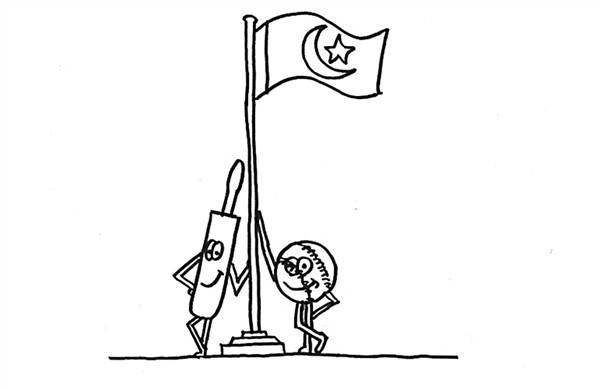
The dark side
Sir,
Through the columns of your esteemed paper, I would like to draw the attention of K-Electric authorities towards the grievance of the majority of our locality for months; we have been facing the problem of acute power breakdown.
Keeping in view the importance of electricity, one can believe that the life pattern during these shutdowns and load shedding periods becomes much worse than normal. One of the very basic reasons of frequent shutdowns and feeder tripping is rain; it is observed that every time just after or during rain, electricity vanishes all across the city. And the interesting part here is that even after the rain and thunderstorm predictions, precautionary steps are not at all taken.
Another reason is the poor technology that is being used by our dear K-Electric; the systems operated are not up-to-date. Due to all of these problems, the business sector bears a great loss. Moreover, the frequent breakdowns of electricity pose a threat to the lives of patients suffering from serious ailments and are in emergency wards of hospitals with no backup power supplies.
Keeping K-Electric aside, load shedding is also a headache for the present government. The promises of terminating load shedding are, as usual, constantly made, either as a pre-election campaign promise or post-election press conference promise.
The authorities concerned are requested to look into the matter seriously and sympathetically. They are requested to relieve us of this constant torture. A prompt step in the right direction will be highly appreciated.
Abdul Moiz Zahid,
Karachi.
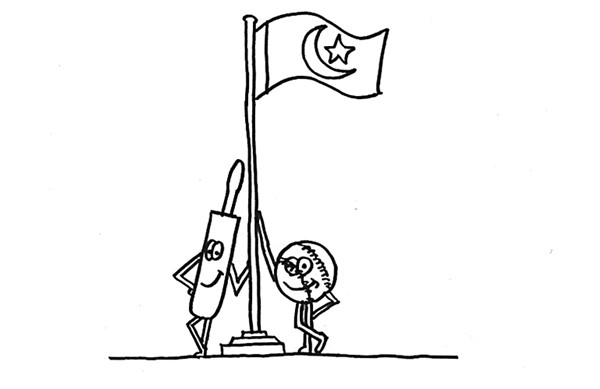
Cricket glory
Sir,
I congratulate all Pakistanis for our cricket team’s victory at the Oval in the fourth and final test match of the current four matches series against England. This victory could not have come at a better time. It came on the evening of the 14th August 2016 when we were celebrating the 70th birthday of our beloved country. Our cricket team crafted this victory by prolonging and stretching its first innings batting as much as it could, which gave our team a lead of 214 runs over England’s first innings score of 328. This lead formed the foundation of our win for the fourth test. England was two-to-one up against Pakistan in the three test matches played, but Pakistan came back very strongly and won convincingly the fourth test by 10 wickets. This victory shows Pakistan’s resilient and fighting character as a nation. The Pakistani nation is resilient, never loses hope and keeps working hard. This victory is a lesson for the doom-and-gloom merchants who spread pessimism about the future of the country’s cricket whenever our team hits a bad patch. Similarly, when we as a country face some adverse situation, the doom-and-gloom merchants write us off as a country. But we always come back strongly. I would like to point out that Pakistan’s cricket team represents the entire country and I believe as a nation we have the resilience and fighting spirit in our character. Like all other countries in the world, we too have problems but we shall overcome the problems because we have the potentials to do so. I am sure there are a lot of good things happening right now in our country, which are not as visible as a victory of a test match and which can’t be noticed or seen clearly because of the pessimistic scenario being presented to us as a nation most of the time. We must believe in ourselves and we shall see a much better Pakistan in future.
Ejaz Ahmad Magoon,
Lahore.
UK tax
Sir,
Responding to public opinion and scathing criticism following Panama Leaks disclosure, the British government has imposed 15% tax on all second home buyers operating through offshore accounts. This is what differentiates between First World country and Third World nation like Pakistan where Finance Minister announces on floor of parliament while presenting Federal Budget to impose 10% tax on actual profits earned from real estate sales if sold within 5 years, only to retract it.
This has become a routine in Pakistan that every government announces a major tax imposition to curtail the black economy, and then negotiates with known tax evaders to either withdraws or dilutes it, thereby consolidating the black economy. It seems in Pakistan “only fools pay taxes”. In first world countries where the tan to GDP ratio is high, representation comes with taxation, while the state invests in the development of human resources by investing in education, health and provision of security and basic necessities of life. In the third world, it is the affluent who get tax reliefs, the documented economy shrinks, black money is parked in tax free real estate and tax evaders dominate parliament with corruption or bribery openly patronized.
Another factor common with corrupt third world countries is that their ruling elite continues to be beholden to their former colonial masters, contributing to their economies by pilfering their own national exchequer and buying properties, assets and business there, announcing mega projects that offer kickbacks. The ‘new East India Company’ operates through willing local collaborators who bleed their national economy and continue to transfer wealth to London, Dubai etc., making their own countries susceptible to instability because of the widening gap between the rich and poor. This also helps unfriendly foreign powers to exploit and recruit locals, as and when required to achieve their nefarious designs. Major political decisions are made abroad and even cabinet meetings held there, while political parties are headed by individuals who hold foreign nationalities, yet we celebrate Independence Day with such fanfare, while negating and rejecting the vision of the Quaid, who wanted Pakistan to be a modern democratic welfare state.
Malik Tariq Ali,
Lahore.
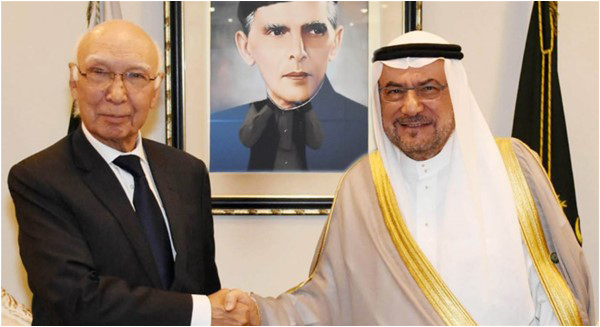
OIC and Kashmir
Sir,
Organization of Islamic Cooperation (OIC) Secretary General Iyad Ameen Madani, addressing a joint press conference with adviser to the PM on Foreign Affairs, Sartaj Aziz, expressed serious concerns over human rights violations in Indian-occupied Kashmir and supported Pakistan’s stance on the issue.
The OIC was founded in 1969, comprising 57 member states. Its work was to safeguard and protect the interests of the Muslim world in the spirit of promoting international peace and harmony. Unfortunately, the OIC is not playing its vital role in this regard. There is the worst lack of unity among Muslims. From Syria to Yemen, Iran to Saudi Arabia and Iraq to Sudan, everywhere Muslims can be seen divided and fighting against each other. First of all, the OIC should unite the Muslim world by resolving their internal conflicts amicably. When the OIC would create unity among Muslims, then it would be able to safeguard the interests of the Muslim world.
Human rights have been violated in Kashmir by India since many decades. The OIC has always just issued statements of condemnation and never taken the issue seriously. The OIC should convene its emergency meeting to discuss the burning issue of Kashmir and highlight the brutalities of Indian forces in the valley. The OIC has permanent delegations to the United Nations and the European Union. I request to Iyad Ameen Madani, the Secretary General of the OIC, to come forward and put the pressure on the UNO for peaceful solution, according to its resolutions to give the right of self-determination to Kashmiris.
Mansoor Ahmed,
Faisalabad.
Harmony
Sir,
We regularly hear how the Shia-Sunni split finds its roots in the early years of Islam, and how this rift continues to play out in what is happening in the Middle East. Too often our TV screen are full of all that created rift, but seldom do we ever see or hear what can bring us together as one people. When you get to the depth of the matter, the things that perhaps divide Shias and Sunnis are very few compared to all that unites us. Our faith, our beliefs, the crux of our practices, even our theological sources are more or the less similar. Why is it then that we refuse to bury the past and start fresh.
Perhaps there are academics and intellectuals that can shed light on the matter and prescribe a way forward. But the fact remains, we Muslims need to come together. The sooner the better. Millions have lost their lives over the centuries, just because they did not belong to someone else’s sect. Surely we can understand the folly of our differences and prevent millions more losing their lives as this drama continues to unfold. Our leaders, religious and otherwise, need to come together and preach love instead of hatred, unity instead of division, tolerance instead of extremism. Not only would this help resolve so many conflicts playing out in the world right now, but also benefit us in Pakistan as a nation.
Asad Amir,
Lahore.
Tainted meat
Sir,
It is disillusioning to see that meat vendors in Pakistan have no compunctions about exploiting consumers by selling haraam meat. On a recent inspection, the food authorities discovered that a number of vendors had mixed pork or horsemeat with mutton and beef. This is tantamount to playing with consumers’ health, given that pork and horsemeat are considered unlawful in Islam. Moreover, the practice clearly violates Islamic rulings, which call for justice and fairness in business dealings and, in this case, require that traders and vendors should supply fresh, halaal and hygienic edibles to consumers.
The government should adopt a stringent mechanism to rectify this anomaly, for example, by sealing off such shops and heavily fining and/or arresting vendors found to be selling such meat to their customers.
Aiyza Javaid,
Lahore.
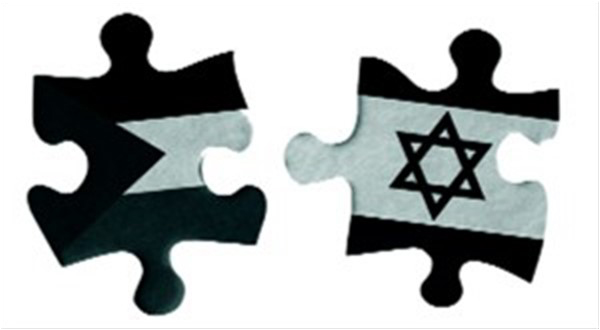
Solution
Sir,
The current global environment of distrust of the Muslim world is not merely due to the violence and terrorism associated with Muslims. There are a number of reasons for this, which the Muslim community should examine and address.
First and foremost, Muslims should recognize that an interpretation of Islam that is more human rights-friendly is closer to modern thought and democracy than other faiths. Second, as long as Sunni Saudi Arabia and Shia Iran continue to oppose each other, neither will be capable of providing leadership or unity to the Muslim world. Thus, Muslims should consider looking to other countries to play this role. Here, Palestine could serve as a key bond. The Palestinians’ long history of repression by Israel commands respect and sympathy among Muslims across the world. More important are US interests in the region. As the world’s predominant economic and military power and with a vested interest in Israel’s wellbeing, the US has reason to want a solution to the Palestine and Syria crises. If the Palestine solution could be framed in conjunction with the Syrian solution, this would help resolve other problems being faced by Muslims in other parts of the world. For this, they must persuade the Palestinians to agree to such a solution through UNPKF and MESI.
After so much bloodshed and suffering, the Arab Spring should not be allowed to fail. With wide powers given to the UN Election Commission during the elections in Syria, the Muslim community should persuade the US not to give up when success is so close. The UN should be asked to make provision for volunteers from UN-registered human rights NGOs, who will likely come in large numbers from South Asia and the Southeast Muslim countries, to help bring peace and stability to Syria. This would also reduce the financial burden on UN peacekeeping programs in Syria and later in the rest of the Middle East. The Muslim world will also have to motivate the Palestinians to agree to a one-state solution with suitable modifications in their interest. Many Palestinians are now inclined to reject propaganda from Israel and the West in favor of a two-state solution. A useful measure could be to launch a registered lobbying forum in the US for interested people to lobby for the Palestinian cause.
Hem Raj Jain,
Jefferson City, MO.
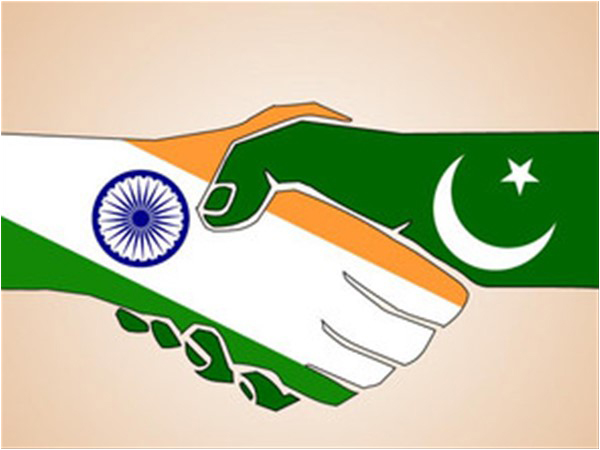
Root cause
Sir,
India and Pakistan share a history of hostile relations since their independence in 1947. The countries have never been on good terms and apparently don’t seem like they will get along moving forward. Pakistan’s Chief of Army Staff General Raheel Shareef recently termed the cause of hostility between the two countries as the “incomplete division of subcontinent”. Obviously, the Kashmir dispute is the legacy of an incomplete division. If Britain had divided the subcontinent justly, the world would not fear a nuclear war in South Asia. According to the partition plan, the fate of over 550 princely states was left to the geographical location and wishes of the people. The State of Jammu and Kashmir should have acceded to Pakistan because of its geographical location and Muslim majority population. The instrument of accession signed by Maharaja Hari Singh of Kashmir with India did not reflect the true will of the people. It is cited in history that tribal Pakistanis raided Kashmir, and in response Maharaja Hari Singh asked for help from the Indian government, but this is an engineered and fake version of the past. In fact, Indian forces landed in Kashmir first and retaliation from indigenous Kashmiris came later, which was rightly supported by Pakistan.
Recent developments in India and Pakistan are once again threatening regional peace and stability, and the possibilities of a nuclear war in the region are being discussed in the international media. With Modi as India’s Prime Minister, the threats are greater for Pakistan. Modi’s ambitions are inviting Pakistan to a war, but economically Pakistan is not in a position to afford another war. Indian violations of the Line and Control, hate speeches against Pakistan, media campaigns and strong diplomacy, are all parts of their preplanned strategy. Pakistan’s nuclear power is its best bulwark; otherwise ModiSarkar is in full mood to start a bloody adventure. Modi is hailed in India as the leader of pure Hindutva. He had and still has the support of hard-core Hindu extremist parties like RSS (Rashtriya Swayamsevak Sangh), which helped him grab the prime minister’s seat. Allegedly involved in the massacre of two thousand Muslims in Gujrat, Modi’s antagonism to Islam and Pakistan is not a new phenomenon, but his presence in the PM office is encouraging Indian hard-line parties and other members of parliament to engage in a war of words with Pakistan.
The issue of Kashmir will remain an ignition point for a nuclear war in the region. India needs to understand this better than Pakistan. As long as the Kashmiris are not given the right of plebiscite, Pakistan will extend its moral support to them. Pakistan needs powerful diplomacy to counter Indian lobbying, but sadly the Ministry of Foreign Affairs does not have a minister. Apparently, the army chief himself is doing the role of foreign affairs minister on behalf of the government.
Altaf Ahmad,
Lahore.

